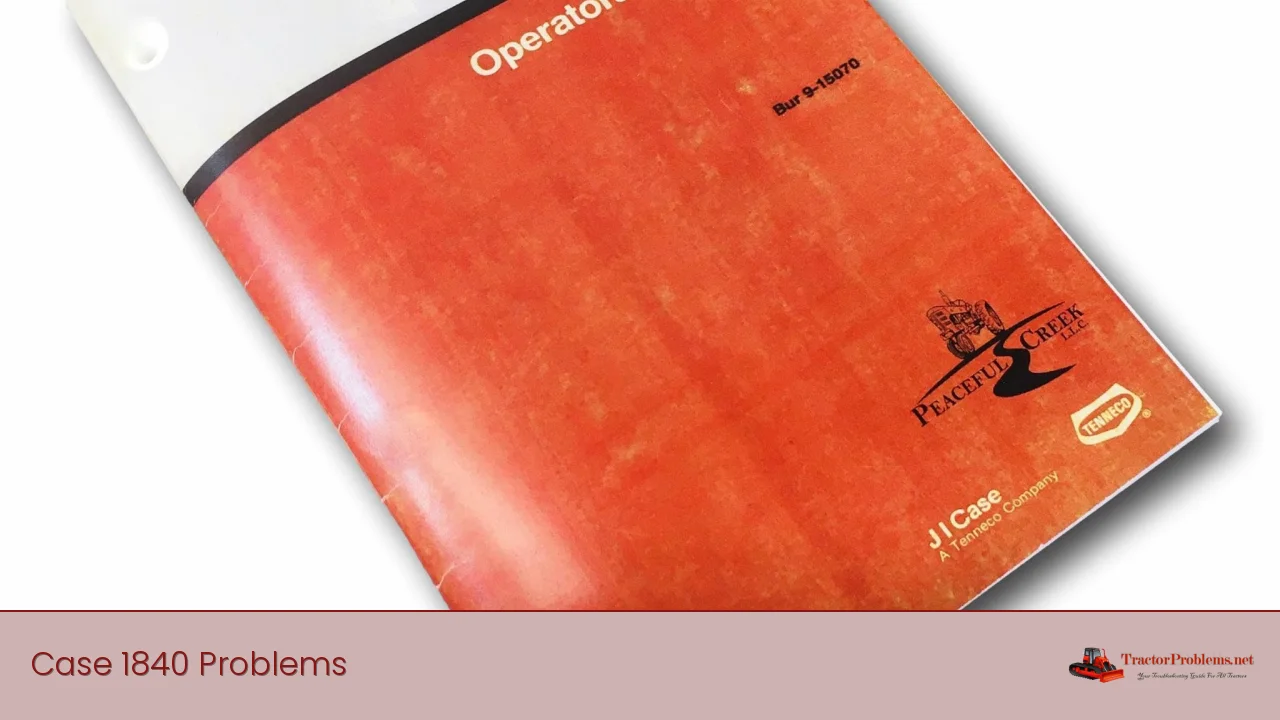The Case 1840 Skid Steer Loader is a dependable machine, but it can still experience problems from time to time. Identifying and addressing “Case 1840 Problems” quickly and accurately is key to keeping your machine running at peak performance. In this article, we’ll explore some of the most common issues associated with the Case 1840 and provide tips on how to identify and fix them.
Common Case 1840 Problems and How to Fix Them
Owning a Case 1840 Skid Steer Loader can be a great asset, but it can also become a costly liability if not properly maintained. Case 1840 Problems can range from minor issues to major problems that can lead to costly repairs. But with the right knowledge and tools, you can identify and resolve most Case 1840 Problems quickly and efficiently. In this article, weâll discuss some of the most common Case 1840 Problems and provide tips on how to diagnose and repair them.
| Problem | Description | Solution |
|---|---|---|
| Engine Overheating | The engine is running too hot. | Check the cooling system and replace any broken or worn parts. |
| Oil Leaks | Oil is leaking from the engine or other components. | Check the oil level and replace any worn or broken seals or gaskets. |
| Hydraulic Problems | The hydraulics are not functioning properly. | Check the hydraulic fluid level and pressure, and replace any worn or damaged components. |
| Electrical Issues | The electrical system is not functioning properly. | Check the wiring for any damaged or loose connections, and replace any faulty components. |
| Tire Wear | The tires are wearing unevenly or prematurely. | Check the wheel alignment and tire pressure, and replace any worn tires. |
Engine Failure
Engine failure is a common problem with the Case 1840, resulting in the machine losing power when operating. This can be caused by a number of different issues, including clogged fuel or air filters, a faulty fuel pump, or a faulty spark plug. To resolve this issue, the faulty component needs to be identified and replaced. In the case of engine failure, it is important to identify and resolve the problem quickly to keep the Case 1840 running at peak performance.
Leaks
Leaks are another common issue with the Case 1840, which can be caused by a worn seal or gasket. This can result in hydraulic oil or other fluids leaking from the machine, potentially causing damage to the engine. To fix this issue, the leak needs to be identified and the seal or gasket replaced. It is important to check for any signs of leaks on the Case 1840 regularly, as catching them early can help prevent further damage.
Overheating
Overheating is a common problem with the Case 1840, which can be caused by a clogged radiator or a faulty cooling fan. To resolve this issue, the radiator needs to be flushed and the cooling fan checked for proper operation. Regularly checking the coolant levels and the condition of the cooling fan can help prevent the Case 1840 from overheating.
Key Takeaways: Common Case 1840 Problems and How to Fix Them
- Engine overheating can be caused by clogged fuel or air filters, a faulty fuel pump, or a faulty spark plug.
- Leaks can be caused by worn seals or gaskets and should be identified and replaced as soon as possible.
- Overheating can be caused by a clogged radiator or a faulty cooling fan which should be flushed and checked for proper operation.
- It is important to regularly check the coolant levels and the condition of the cooling fan to prevent overheating.
It is clear that the Case 1840 is a powerful machine, capable of completing a variety of tasks. However, regular maintenance is key to keeping it running at peak performance. Common issues such as engine failure, leaks, and overheating can be quickly identified and resolved with the help of experienced mechanics. By following the tips provided in this article, the Case 1840 can be kept in top condition and continue to provide reliable service for years to come.
Conclusion: Ensuring Optimal Performance of the Case 1840
The Case 1840 is a powerful machine, but regular maintenance is essential for keeping it running at its best. By being aware of common problems, such as engine failure, leaks, and overheating, and following the steps outlined in this article, the Case 1840 can remain in top condition and provide reliable service for years to come.
